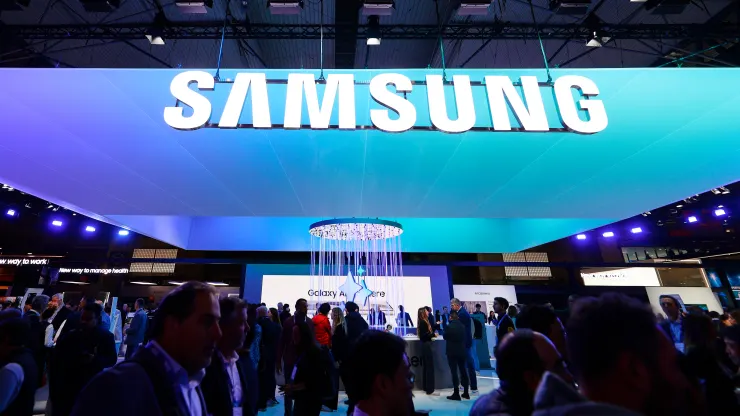Shares of Samsung Electronics jumped to their highest level since January 2021 after the South Korean tech giant said it expects better-than-expected profit for the second-quarter, thanks to explosive demand for artificial intelligence.
The stock climbed as much as 2.24% on Friday morning, trading at a high of 86,500 Korean won ($62.73), according to LSEG data. Samsung shares closed at 84,600 won on Thursday.
Samsung issued guidance on Friday, saying operating profit for the April to June quarter is projected to be about 10.4 trillion won ($7.54 billion) — that’s a jump of about 1,452% from 670 billion won a year ago. The expected operating profit beat a LSEG estimate of 8.51 trillion won.
The firm also said it expects revenue for the second quarter to be between 73 trillion to 75 trillion won, from 60.01 trillion won a year ago. This is in line with the 73.7 trillion won estimated by LSEG analysts.
Business for the world’s largest memory chip maker rebounded as memory chip prices recovered on AI optimism last year. The South Korean electronics giant saw record losses in 2023 as the industry reeled from a post-Covid slump in demand for memory chips and electronics.
Its memory chips are commonly found in a wide range of consumer devices including smartphones and computers.
Samsung said in April it expects the second quarter to be driven mostly by demand for generative AI, while mobile demand remains stable.
The South Korean tech giant has gone big on generative AI with its Galaxy S24 Ultra smartphone, which comes with features for editing photos and searching for items online by using AI.
“Samsung announces earnings surprise but mainly the earnings upside is from memory price high. So ironically, Samsung is lagging behind in HBM (high-bandwidth memory) production. So supply to Nvidia –the qualification – has been delayed,” SK Kim, executive director of Daiwa Capital Markets, told CNBC’s “Street Signs Asia” on Friday.
HBM chips are advanced memory chips crucial for AI chipsets – which have seen a huge demand thanks to the AI boom. This has largely benefitted firms such Samsung Electronics and SK Hynix, the top two memory chipmakers in the world.
Reuters in May reported that Samsung has yet to qualify for use in Nvidia’s AI processors, as Nvidia is said to be considering Samsung as a potential supplier of HBM chips. Samsung refuted the report, saying the tests with several partners for HBM supply are “on track.”
“But despite the delay, the company announces earning surprise is driven by the memory price high,” said Kim.
“So although they are delayed in the HBM – most advanced memory product – they enjoy the benefit from their number one capacity, market share so they maximize the profit with a higher ASP (average selling price).”
Samsung is set to release detailed second-quarter results later this month.

